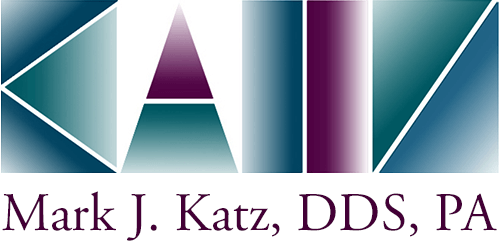Discover the Link Between Sleep Apnea and TMJ Disorder
Sleep apnea is a chronic condition where breathing repeatedly stops and starts during sleep, which can lead to serious health complications if left untreated. Meanwhile, TMD (temporomandibular joint disorder) affects the jaw joint and surrounding muscles, causing pain and discomfort. Recent studies have highlighted a link between sleep apnea and TMD, suggesting that untreated sleep apnea may worsen TMD symptoms and vice versa.
At our Greensboro, NC, dental office, Dr. Mark Katz offers comprehensive care for sleep apnea. We aim to improve your quality of life with specialized treatments and ensure restful sleep. Call (336) 364-8988 today to schedule a consultation and learn more about how we can help.


What Is TMJ Disorder?
The temporomandibular joint (TMJ) connects your jawbone to your skull, allowing flexible movement in various directions. When this joint or its surrounding muscles are strained, TMJ disorder (TMD) can occur, leading to symptoms like jaw pain, headaches, neck tension, and difficulty chewing or speaking. TMD can disrupt sleep, especially if it coexists with sleep apnea, and may contribute to other health issues over time.
How Are Sleep Apnea and TMJ Disorder Connected?
Research indicates that people with sleep apnea often clench or grind their teeth (a condition known as bruxism) during episodes of interrupted breathing. This response places significant stress on the TMJ and surrounding muscles, potentially leading to or worsening TMD symptoms. Similarly, chronic TMD pain can impact sleep quality, aggravating sleep apnea symptoms.
If you’re struggling with sleep issues, jaw discomfort, or both, visiting a sleep dentist like Dr. Katz in Greensboro is essential. We can identify and manage these conditions to help you sleep better and relieve TMD symptoms.


Shared Symptoms of Sleep Apnea & TMJ Disorder
Patients with both sleep apnea and TMJ disorder may experience overlapping symptoms, such as:
- Morning Headaches: Both conditions can lead to headaches due to disrupted sleep and jaw tension.
- Jaw and Facial Pain: Tension and grinding due to sleep apnea or TMD can result in persistent pain in the jaw and facial muscles.
- Limited Jaw Mobility: TMD may cause difficulty opening or moving the mouth, and sleep apnea can increase tension in jaw muscles.
- Ear Pain and Pressure: TMJ issues can lead to ear pain, while sleep apnea can cause discomfort due to changes in air pressure.
- Daytime Fatigue and Drowsiness: Sleep apnea leads to sleep deprivation, which can result in daytime sleepiness, while TMD discomfort can also interfere with sleep quality.
If you’re experiencing any of these symptoms, scheduling an evaluation with Dr. Katz can help determine if you have sleep apnea, TMD, or both.
Effective Treatments for Sleep Apnea & TMJ Disorder
Treatments vary based on each patient’s unique symptoms and the severity of their condition. Common options include:
- Continuous Positive Airway Pressure (CPAP): A CPAP machine delivers air pressure through a mask to keep your airway open during sleep, the most widely used treatment for sleep apnea.
- Oral Appliance Therapy: Custom-fitted oral appliances are worn during sleep to reposition the jaw, keeping the airway open and relieving TMJ stress. These appliances can treat both sleep apnea and TMD symptoms, offering patients a dual benefit.
- Lifestyle Modifications: Weight loss, stress management, avoiding alcohol before bed, and practicing good sleep hygiene can significantly improve both sleep apnea and TMD.
- Surgical Intervention: In severe cases, surgery may be necessary to address the underlying cause of either condition.
If you suspect sleep apnea or TMD, it’s crucial to consult with a healthcare professional. Your primary care doctor may recommend a sleep study to confirm sleep apnea, while Dr. Katz can develop a personalized treatment plan based on your diagnosis.

Frequently Asked Questions
Can sleep apnea cause TMJ disorder?
Will an oral appliance help both sleep apnea and TMJ disorder?
Are there lifestyle changes that help with sleep apnea and TMJ disorder?
Can stress contribute to TMJ disorder?
Get Relief and Sleep Better
Understanding the connection between sleep apnea and TMD can lead to more effective treatment options, helping you sleep soundly and avoid additional health complications.
If you’re experiencing sleep apnea symptoms or TMJ disorder, call Dr. Katz at (336) 346-8988 to schedule an appointment at our Greensboro office. We serve Greensboro and nearby areas, including Winston-Salem, Whitsett, Summerfield, and Kernersville, NC.
